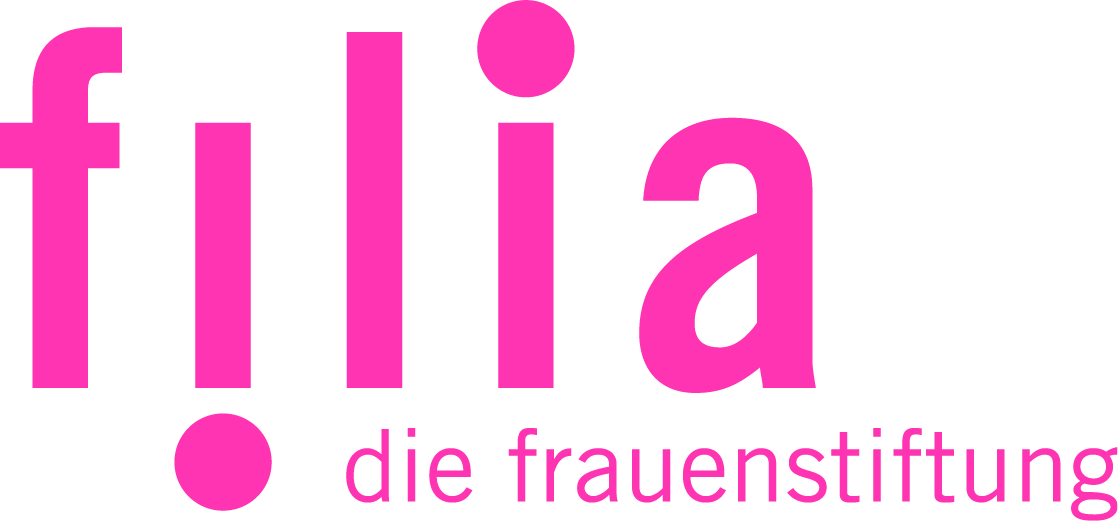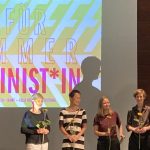What empowerment is all about
Empowerment enables people to stand up for themselves and their communities. Our empowerment programs aim to support women and girls in “taking the lead with confidence”. filia’s funding not only aims to alleviate symptoms of inequality, but also to tackle and solve problems at their roots. When selecting projects for funding, it is important to us that our project partners work in a self-determined manner and want to change social structures.
Balance between basic needs and political work
But what does it mean to change social structures? At first, this sounds like big and professional campaigns, lobbying or similar activities. But while these are important activities, especially in the practice of self-organized groups, the satisfaction of basic needs and other political work cannot always be separated. Especially when it comes to insecurities in the supply of food and everyday goods or issues of physical health and safety, initiatives and organizations often provide relief where state structures are lacking.
Our funding partner NINA – womeN IN Action/fraueN IN Aktion from the Empowerment Program for Refugee Women* put it as follows: “We fight for the rights of women. The personal problems of some are our problems – we see them as problems of the society we face.” NINA is an open women* group, for refugees, migrants and Germans.
They partly used their filia funding for visiting various camps in Hamburg in 2020 and 2021. The Corona situation made their work more difficult, as the activists were not allowed into the camps. They distributed food to residents outside the gates, gave them information and contacts to lawyers or health care and learned what else was needed. Since many of the group’s activists are themselves living in difficult conditions, an important decision during the pandemic was to allocate funds from the grant to compensate group members for expenses.
Furthermore, NINA organized workshops with a doctor and a lawyer for refugee women. In this context, the women were informed about the Corona vaccination or the asylum process, among other topics. The lawyer also offered individual consultations. In addition, NINA organized an online party to meet each other despite the pandemic and contact restrictions. The party offered the women a nice break from everyday life and exchange in a relaxed setting.
Thinking about childcare
An important part of NINA’s work is also that they organize and offer childcare at their meetings and workshops. After all, women do much of the care work that is involved, which includes childcare. But even in organizations that want to empower women, it is not a matter of course that childcare services are included in the planning.
At the Feminist Connect summer meeting, organized by the Feminist Resist alliance, childcare is also included in the planning. In addition to NINA, the alliance includes Women in Exile and FLIT Solidarity Africa, among others. In 2020 and 2021, the alliance used a filia grant under the Girls’ Empowerment Program to expand childcare into the “Feminist Connect Junior” project. The children traveling along had the chance to set up their own program.
More than just care: empowerment for children
Feminist Connect is an annual gathering by and for women, especially Women of Color, Migrant* Women and Refugee FLINTA. During the week-long get-together, the women participate in various activities. In these, for example, they learn more about their rights, share experiences and strategies, or train specific skills – empowering themselves and each other.
At the 2021 meeting, the children traveling with us were involved in the planning of the children’s program from the outset. They were able to suggest activities themselves and set them for the different days. There were, of course, activities that focused primarily on fun: treasure hunts, pool parties, and horseback riding, among others. But the children also planned and carried out educational activities, e.g. workshops on refugee rights, empowerment and dealing with the media.
The feedback from the participants, both young and old, showed the organizers and filia how fundamental it is for children to participate in political work. Being able to plan and carry out their program independently – with support – helped the children to exercise their right to participation, to clearly state their wishes and concerns, and to become actively involved in shaping the groups and activities that affected them. Many of them wanted to establish further meetings of this kind.





